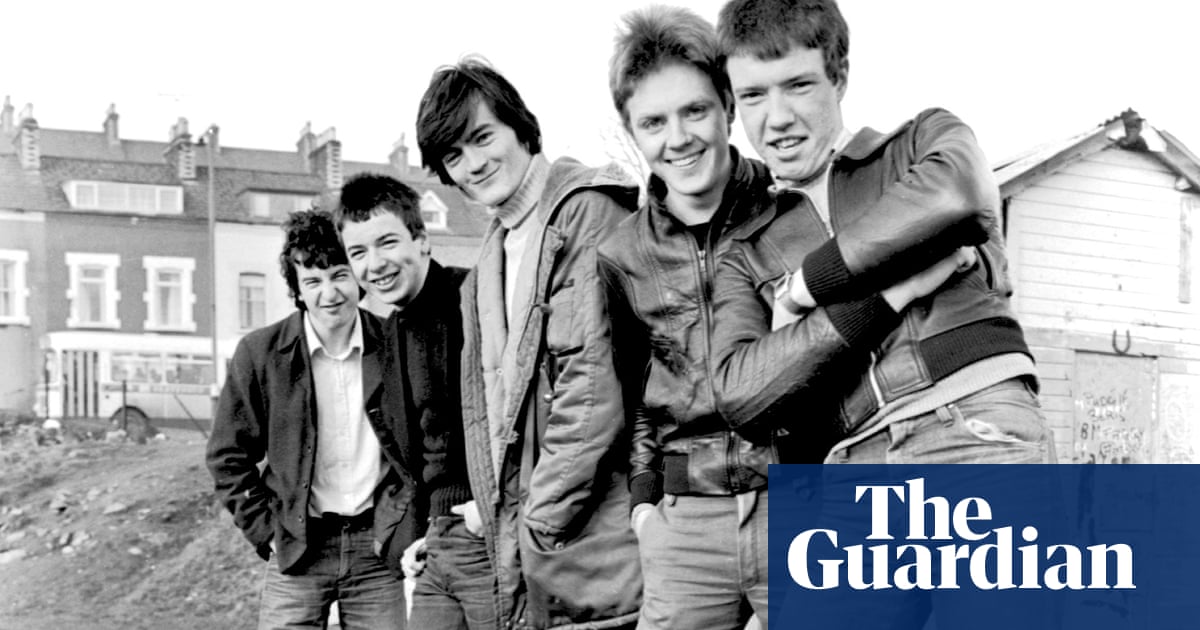
When Steve McQueen’s new film, Blitz, premieres at the London film festival on 9 October, those in attendance will see a side of the bombing raids and their aftermath that’s rarely shown in popular depictions.
It’s grimy and chaotic: people pick over dead bodies for valuables, fire crews wrestle with out-of-control hoses, while others find sexual freedom in the fog of war – it all happens during a story that focuses on a child’s attempt to make his way back to his mother after being evacuated.
“We were not just fighting our enemy, we were fighting ourselves,” says McQueen, who is returning to the subject of the second world war after his 2023 documentary, Occupied City.
The blitz spirit is here in abundance, but it’s not like we’ve seen it before.
McQueen said the new portrayal of the blitz, in which cities including London, Liverpool and Manchester were terrorised by German bombing raids that lasted from the autumn of 1940 to the spring of the following year, was inspired by the research he and his team did in preparation for his latest feature film.
“People tend to look at this period two ways,” says Joshua Levine, the author of The Secret History of the Blitz, who worked as an adviser on Blitz and Dunkirk. “Either the blitz spirit was everything, and everyone pulled together all the time, or it was a time of total misery, and of course the reality is far more interesting and far more complicated.”
McQueen, name-checking his lead characters played by Saoirse Ronan, Elliott Heffernan and Paul Weller, says: “I wasn’t interested in Churchill. I wasn’t interested in Monty [Bernard Montgomery]. I was interested in Rita, George and Gerald.
“I was interested in ordinary people, how they navigated their way through this hell which was put on them … For me, it wasn’t about guys in khaki in a field somewhere in France, fighting each other. It was about people trying to deal or trying to survive in their everyday life, a little similar to what’s going on now in Israel and Gaza, and Lebanon.”
The timing of Blitz’s premiere isn’t lost on McQueen: the film will be shown two days after the one-year anniversary of the 7 October attacks by Hamas in southern Israel, which triggered the war in Gaza that has since spread across the region.
So far, at least 16,000 Palestinian children have been killed in a conflict that does not have an end in sight. Does he think his film about the terror of war told through the eyes of a child will have more poignancy now?
“I think there’s a timeless quality to those things because, unfortunately, we’re always at war, one way or the other. There’s Somalia, which is on the brink of war now, which doesn’t get a lot of headlines. Ukraine, of course. Because it’s two days after the [anniversary] and what’s going on now, for sure, it will be more heightened,” he said.
“Unfortunately, it couldn’t come at a better time.”
Blitz is possibly the most diverse depiction of London during the second world war yet. A Nigerian air raid warden, Ife (played by Benjamin Clémentine), is based on a real-life figure; Rita works with a racially diverse crew of women in the munitions factory; and Ken “Snakehips” Johnson, a gay jazz singer who performed at London’s Café De Paris, also features.
Was it important for him to present a different depiction of wartime London? “It wasn’t important to me at all, it’s just what I found,” says McQueen. “I wanted to find out what the landscape was. For example, off Seven Dials [in Covent Garden], there was like three black clubs. Women working in factories and how they, after the war, were not going back to domestic chores.”
The lead character, George, played by a then nine-year-old Heffernan, was inspired by a picture McQueen saw of a young black boy being evacuated from London in the 1940s. “I came across this photograph of this small black child, this boy with a large overcoat and a very large suitcase. I thought to myself, that’s my ‘in’. Who was he, what was his story, we need to see the war through his eyes. What was it like for him?”
The director hopes answering that question can make audiences reassess how society has become desensitised to war and conflict. “The reason I used the child’s gaze was to refocus our own gaze as adults. For children, there is good and bad, it’s right and wrong, and at some point, we start to compromise,” says McQueen.
“We start to turn a blind eye to certain things. Hopefully we can refocus our own gaze and see the bizarreness of war. Killing someone’s not normal, and it should never be normal, but unfortunately we deem to normalise it.”
The BFI London film festival will run from 9 to 20 October.












